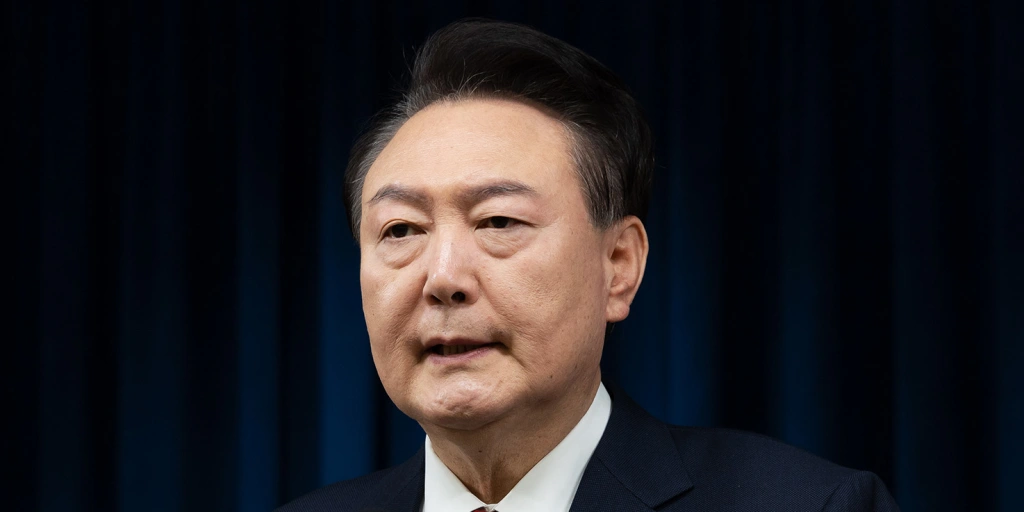News Flash
News Flash

SEOUL, Jan 13, 2025 (BSS/AFP) - The impeachment trial of South Korea's
suspended president Yoon Suk Yeol begins on Tuesday to decide the former star
prosecutor's fate after his short-lived martial law decree.
The country's Constitutional Court will rule on whether to uphold
parliament's decision to impeach Yoon or restore his presidential powers.
AFP takes a look at what we know:
- What is happening? -
Armed troops stormed the National Assembly building on December 3 following
Yoon's martial law decree, scaling fences, smashing windows and landing by
helicopter.
The country's opposition-controlled parliament voted the decree down hours
later, forcing Yoon to lift it.
The court has 180 days from December 14, when it received the case, to rule
on whether Yoon violated the constitution and the country's martial law act.
Yoon separately faces criminal charges of "insurrection" but has refused to
be questioned by investigators and has resisted arrest.
His lawyers have argued that the court must use the full 180 days --
specifically to examine what "led to the declaration of martial law".
- Will Yoon appear? -
The trial's five hearings will proceed from January 14 to February 4 in
Yoon's absence if he does not attend.
Yoon's legal team says the former prosecutor remains inside his residence and
may appear at one of the hearings, but that security issues must be resolved
first.
"Concerns about safety and potential incidents have arisen. Therefore, the
President will not be able to attend the trial on January 14," lawyer Yoon
Kab-keun said in a statement to AFP.
Former South Korean presidents Roh Moo-hyun and Park Geun-hye did not appear
for their impeachment trials in 2004 and 2016-2017, respectively.
Park was dismissed from office by the court in 2017, while Roh was able to
serve a full five-year term after the court restored his powers.
For Park, it took the court around 90 days to deliver its verdict, and around
60 days for Roh.
But "for Yoon, the reasons for his impeachment are relatively
straightforward," Yonsei Law School professor Lee Jong-soo told AFP.
- Eight justices -
Acting president Choi Sang-mok appointed two new justices to fill three
vacancies on the Constitutional Court's benches last month despite backlash
from his ruling People Power Party.
The decision has increased the likelihood of Yoon's impeachment being upheld
-- with at least six out of eight justices needed to back the decision.
Among the eight, three are considered to be liberal while the others are
categorised by local media as centrist or conservative.
Two of the liberal justices, Lee Mi-son and Moon Hyung-bae have their terms
slated to end on April 18.
"There is a strong likelihood that a ruling will be reached before the terms
of the two justices expire," said Yonsei's Lee.
- The next president? -
A new presidential election could be held within 60 days if the court
dismisses Yoon.
Opposition leader Lee Jae-myung is widely expected to win if this scenario
unfolds.
But Lee faces several trials over alleged corruption and other criminal
charges.
He was convicted of violating the election law in November and sentenced to a
suspended prison term, and if the Supreme Court upholds the conviction before
new polls, he will be barred from running.
Legal experts say the verdict will likely be postponed until the end of Lee's
five-year term if he wins the presidency before the court's ruling.
According to South Korea's constitution, a president "shall not be charged
with a criminal offense" in office except for insurrection or treason.
This clause is expected to be interpreted broadly to include criminal trials,
allowing Lee to focus on his duties, Korea University law professor Kim Ha-
yurl told AFP.
- Yoon's return? -
Recent polls show approval ratings for Yoon's ruling party, which is
defending the impeached
president, have been rising as the crisis continues.
A Gallup survey last week showed the People Power Party's approval rating had
risen to 34 percent from 24 percent three weeks before.
Those who oppose a potential Lee presidency are rallying to support Yoon's
party.
They believe "the only party capable of opposing the Democratic Party is the
People Power Party," Park Sang-byung, a political commentator, told AFP.
If the Constitutional Court restores Yoon's powers, political experts predict
more turmoil.
"There will likely be political retaliation (by the PPP)," Chae Jin-won of
Humanitas College at Kyung Hee University told AFP.
Yoon's supporters and allies have accused the court of bias.
But the Constitutional Court is a neutral body "absolutely unaffected by
public opinion" and "conducts fair judgements", court spokeswoman Cheon Jae-
hyun told AFP.